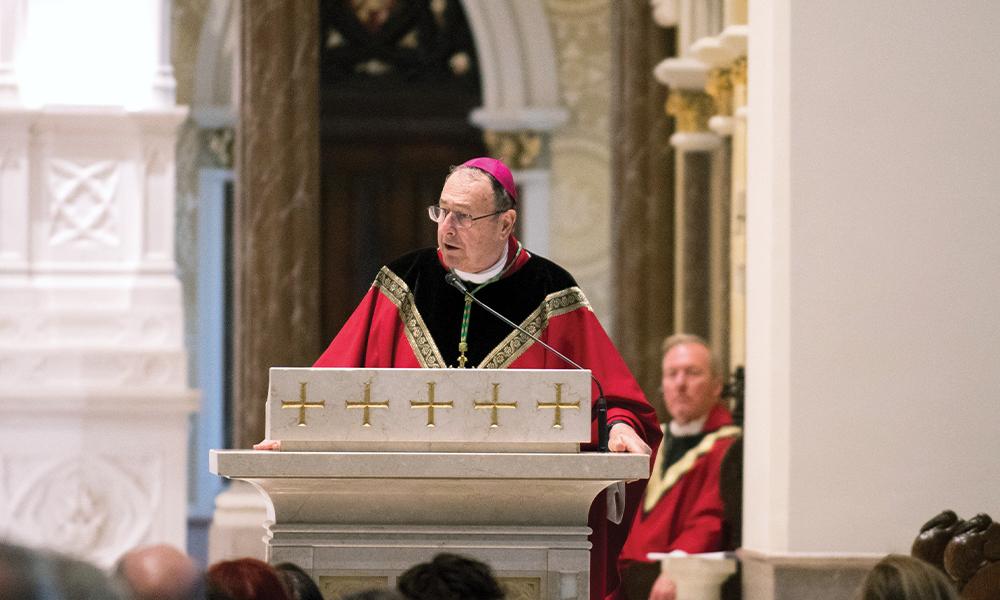
Synodality
What on Earth?
What on Earth?
“Withness” is not a word found in the typical vocabulary. It is an apt expression, however, for the core of our Catholic Christian faith and a basic principle and motivator for our current talk about synodality.
“Withness” is not a word found in the typical vocabulary. It is an apt expression, however, for the core of our Catholic Christian faith and a basic principle and motivator for our current talk about synodality.
This month, we celebrate the coming of Emmanuel, God-with-us. Every time we worship together, we celebrate the Lord’s presence among us and within us. At the very heart of the Church is communio, the “withness” of the Blessed Trinity, the communion of saints, the whole body of believers.
We are currently in the midst of an initiative of Pope Francis that is really not new: a movement toward more extensive and more effective synodality. The word “synod,” from the Greek, literally means “a course with” or “a way with,” and it typically is used in English to refer to a meeting, a council, an assembly.
Synodality is modeled for us from the earliest days of the Church. In the Acts of the Apostles, we read of the Council of Jerusalem. And in both Acts and St. Paul’s letters, we hear of communities of believers who prayed and acted together: the household of Lydia, the evangelical outreach of Priscilla and her husband Aquila, the church that met at Chloe’s house and so on.
Sometimes there were things that had to be resolved — with prayer and discernment needed to overcome wrangling. The important point is that they were set on the oneness of mind and heart found among the very first Christians. All of the believers were to be active participants in the life of the community.
So, as we move through various listening sessions and respond to surveys, we’re asked to reflect on how we might arrive at better “withness.” Synodality isn’t about creating congresses or parliaments to vote doctrine in or out. It is about finding ways and means for the faithful to be engaged in appropriate direction-setting and pastoral practice to bring to life our oneness in the Lord.
If synodality fulfills its intentions, we won’t hear believers speaking about the Church as an abstract “they” or complaining that we’ve been blind-sided by decisions from on high.
Synodality promises to result in a more vibrant, personalized and participatory faith community. If it opens up our Church life as it should, we all should have an intensified sense of “withness” in the universal and the local Church. And we will surely want to sing “Gloria in excelsis Deo.”
Discover more about the synod and take the survey at charlestondiocese.org/synod2023.
